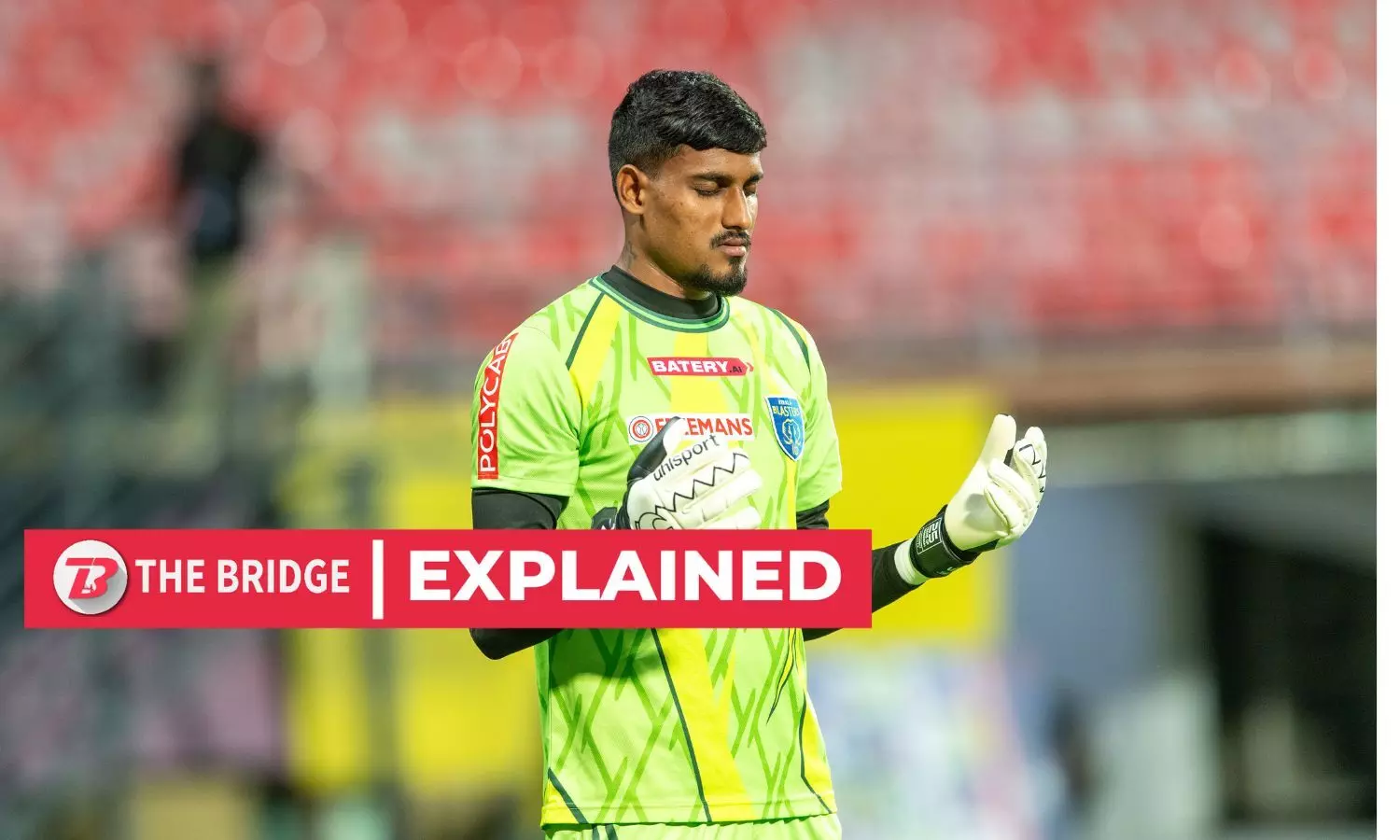Football
Explained: International Football Association Board’s new rules and its impact on Indian Football
The IFAB has introduced key rule changes for the 2025/26 football season, including a stricter eight-second limit for goalkeepers holding the ball, a new approach to captain-referee interactions, and VAR protocol adjustments.

The IFAB has introduced key rule changes for the 2025/26 football season (Photo credit: FSDL)
The International Football Association Board (IFAB) has announced significant changes to the Laws of the Game for the 2025-26 season.
These amendments, set to come into effect from July 1, 2025, will influence football globally, including Indian domestic leagues such as the Indian Super League (ISL), I-League, and the Indian Women’s League (IWL).
Among the most notable changes is the stricter rule on goalkeepers holding onto the ball for too long, a modification that could reshape match dynamics in Indian football.
Goalkeepers under stricter watch
One of the biggest alterations comes under Law 12.2 (Indirect Free Kick).
Goalkeepers will now have a maximum of eight seconds to hold onto the ball, with referees providing a visual five-second countdown.
If they exceed the time, instead of an indirect free kick, the opposing team will be awarded a corner kick. This change aims to prevent time-wasting and encourage faster transitions.
For Indian football, where goalkeepers in the ISL and I-League often use time-wasting tactics to see out narrow leads, this could significantly impact match strategies.
Clubs that rely on defensive solidity might need to rethink their approach, while attacking teams like FC Goa could benefit from the additional attacking opportunities created by forced corners.
Captain’s role strengthened
Under the revised Law 3.10 (Team Captain), competitions will have the option to allow only the captain to approach referees in specific situations.
This is intended to curb verbal dissent and improve communication between officials and players.
If adopted by the AIFF in Indian football leagues, it could reduce on-field altercations, which have often been an issue in high-stakes ISL and I-League encounters.
Dropped ball and offside adjustments
The changes to Law 8.2 (Dropped Ball) clarify how possession should be decided when play is stopped outside the penalty area.
Meanwhile, the adjustments to Law 9.2 (Ball in Play) now explicitly state that if a team official or a substitute unintentionally interferes with the ball as it leaves play, an indirect free kick will be awarded.
Additionally, further offside trials will be conducted to encourage more attacking football. This could be a major development for the ISL and I-League, as Indian football continues to develop its attacking talent.
VAR protocol changes and body cameras for referees
VAR announcements will now be optional, allowing referees to clarify decisions to the crowd post-review.
Given the increasing calls for VAR implementation in Indian football, this change might push AIFF and league organizers to further explore its introduction, particularly in high-profile ISL and I-League matches.
Moreover, FIFA will begin testing body cameras on referees to monitor player behavior, starting with the FIFA Club World Cup. If successful, this could be a future step for Indian referees, potentially improving officiating standards and reducing misconduct.
What this means for Indian Football
These rule changes come at a time when Indian football is rapidly evolving. The ISL has grown into a competitive league with a growing international presence, while the I-League continues to provide a pathway for Indian talent.
Similarly, the IWL is expanding, and better regulation of refereeing decisions could improve professionalism in women’s football.
If the AIFF adopts these new laws promptly, they could lead to a more dynamic, fair, and engaging football experience for players and fans alike.
With time-wasting reduced, more attacking football encouraged, and better communication between captains and referees, Indian football could see a positive shift towards a more structured and professional playing environment.
